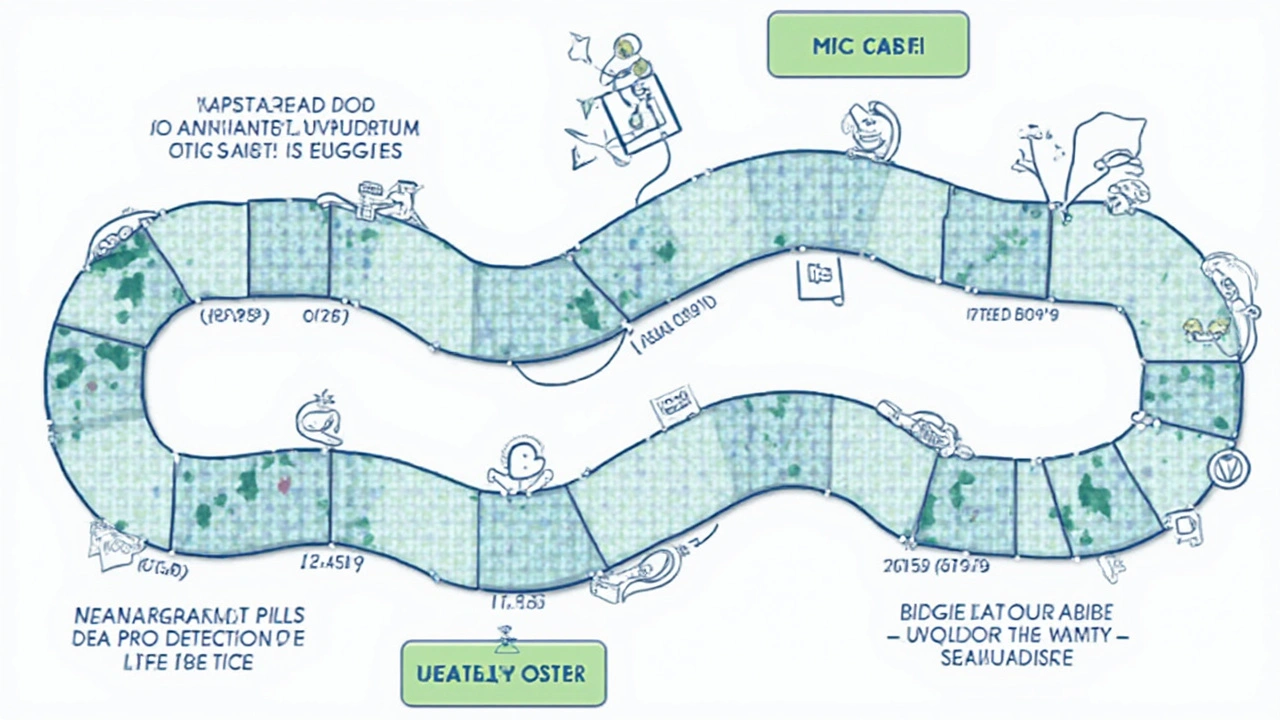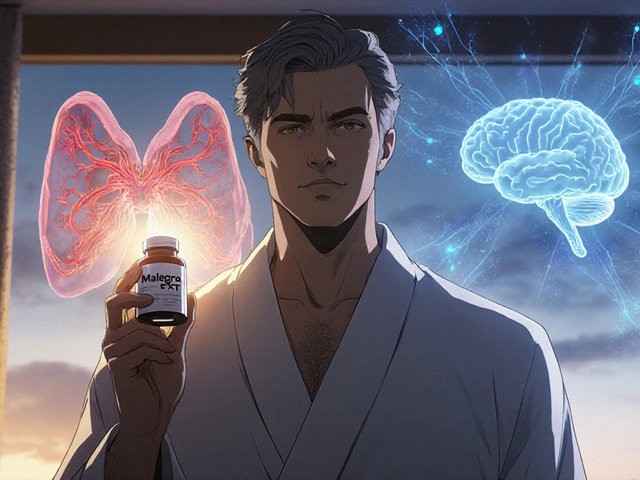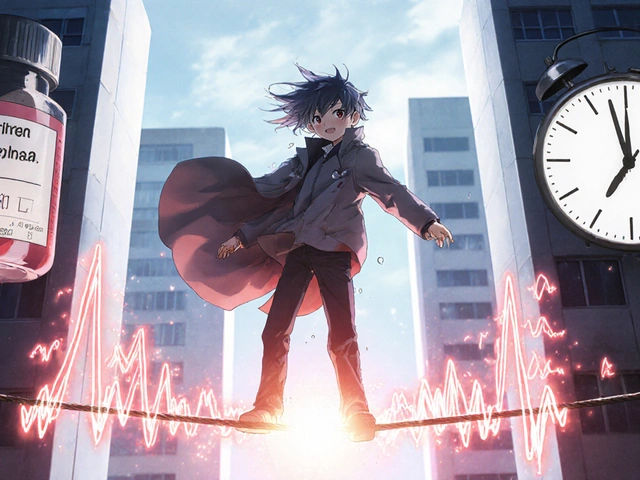If you’ve got a drug test coming up for work and you’ve recently taken a muscle relaxer like methocarbamol, you’re probably wondering if it’s going to mess with your results. With all the rumors and half-truths swirling around about what shows up on a urine test, it’s easy to start feeling anxious. People worry about anything from cold medicine to poppy seed bagels causing trouble, so something with a science-y name like methocarbamol can be even more nerve-wracking. The good news is, things aren’t quite as chaotic as you might hear in break-room gossip. Here’s the straight talk on where methocarbamol fits into the world of drug testing, what you actually need to be concerned about, and the smart moves you can make if you’re prescribed this medication and staring down a pee cup.
What Exactly Is Methocarbamol?
Methocarbamol isn’t one of those mysterious, shadowy substances you find by the glass cleaner at the gas station. We're talking about a pretty standard muscle relaxer, prescribed to cut down on muscle pain and spasms from injuries, back pain, or other musculoskeletal issues. Brand names like Robaxin might sound familiar. It doesn’t get you high and isn’t stashed away with controlled substances—methocarbamol is not considered addictive and isn’t classified as a narcotic. Doctors like it for short-term muscle pain because it calms down the body’s muscle signals but doesn’t knock your brain out. For most people, side effects are mild, usually sleepiness or feeling a bit foggy.
What makes it unique? Methocarbamol works fast, usually kicking in within 30 to 60 minutes, and its effects can last up to about 4 hours. It gets broken down by your liver and then leaves your system mainly through your pee. So while it makes your muscles chill for a bit, it’s not sticking around in your body like some long-term, fat-soluble meds. This info will come in handy when we talk about detection and drug tests, so stash it away for a minute.
Types of Drug Tests and What They’re Hunting For
A lot of people lump every drug test into one mysterious category: “the test that catches everything.” That’s not how it works. Let’s break down what these tests actually do. Most workplace or sports drug screens use a standard urine test panel—the classic is called a 5-panel or 10-panel test. These panels are set up to catch commonly abused drugs, not everything under the sun. The big targets are:
- Opioids (think morphine, codeine, oxycodone)
- Cocaine
- Amphetamines and methamphetamines
- Marijuana (THC)
- Phencyclidine (PCP)
Some fancier panels also check for benzodiazepines, barbiturates, methadone, propoxyphene, and sometimes MDMA or synthetic drugs. But here’s the kicker: muscle relaxers like methocarbamol aren’t the target on any basic panel. No one’s out here testing specifically for methocarbamol. Why? Two big reasons: it’s not a common drug of abuse, and it’s not a controlled substance. Only in very unusual situations (like a high-level sports committee suspicious of every detail) would someone bother to test for it.
The method also makes a difference. Breathalyzers focus on alcohol. Blood tests can show recent drug use but are rarer because they’re expensive and invasive. Hair tests pull up months of history but again, they’re mainly aiming for recreational and performance-enhancing drugs. Urine tests are by far the most common—and they’re just not set up to spot methocarbamol.

Methocarbamol and False Positives: Can It Trigger an Alarm?
This is the big question for anyone who’s had an anxiety spike before a drug screen: could methocarbamol cause a false positive? The short answer is: almost never. Methocarbamol doesn’t look chemically similar to the stuff that triggers drug panel alarms. In simple terms, the test’s antibodies aren’t searching for what methocarbamol releases in your pee.
Now, there have been scattered rumors online (and on social media threads) about methocarbamol somehow faking a result for barbiturates or other substances. But the scientific studies say otherwise. For example, a 2021 clinical review published in the "Journal of Analytical Toxicology" tested common muscle relaxants in standard urine panels—no cross-reactivity for methocarbamol was found. In thousands of hospital drug tests, methocarbamol hasn’t been documented causing false positives for opioids, amphetamines, or any of the usual suspects.
But here’s a tip worth remembering: People taking multiple medications sometimes panic at the word “false positive.” The reality is, most unexpected results come from antibiotics like rifampin, antipsychotics, or even ibuprofen in giant doses, not muscle relaxers. Even if by some fluke a false positive popped up, confirmatory lab tests (the kind used for anything serious like job screening or legal situations) can tell the difference in chemistries. You can always request this next-level test if a surprise result comes your way.
How Long Does Methocarbamol Stay in Your System?
You might be picturing methocarbamol clinging to your body for weeks, like the stories you’ve heard about marijuana or some other slow-clearing drugs. That’s not the case here. The average half-life of methocarbamol is between 1 and 2 hours, meaning your body knocks out half a dose pretty quickly. In healthy adults, methocarbamol is cleared from the blood in about 12 to 24 hours after one dose, although small traces might linger for up to 2 days, especially if you’ve been taking it for several days in a row.
There are a few things that can affect how quickly methocarbamol packs its bags and leaves your system:
- Age: Older adults can clear it more slowly because their metabolism moves at a gentler pace.
- Kidney or liver health: Problems in these organs can slow down elimination.
- High doses or frequent use: Repeated dosing can lead to a longer window for detection, but not by much—still just a few days at most.
For folks who love seeing the numbers, here’s a handy table from a recent pharmacology reference:
| Parameter | Time/Amount |
|---|---|
| Time to peak blood level | 1 hour |
| Elimination half-life | 1-2 hours |
| Urine excretion (percentage within 24 hours) | About 65% |
| Total clearance from body | 24-48 hours |
So, if you’re taking your last dose on Monday morning, most methocarbamol will be gone by Wednesday morning—even faster if you're younger and healthy. That’s a breath of relief if you’re worried about an upcoming drug screen. If you have medical issues or take other meds, it could last just a bit longer, but even then, we’re talking a couple days, not weeks.

Tips for Facing a Drug Test While Using Methocarbamol
No one enjoys surprises in a drug test. If you’re prescribed methocarbamol and have a test coming up, transparency is your best friend, not stealth. Here’s what works:
- Disclose your prescription: You don’t have to shout it from the rooftops, but list methocarbamol on pre-test paperwork. These forms always ask about recent meds. Just write it down with the dosage.
- Bring evidence: Keep your prescription bottle or a copy of the doctor’s note handy. If there’s a hiccup, showing proof gets things cleared up quickly.
- Avoid mixing: Don’t combine methocarbamol with other substances (especially alcohol or sedatives) right before a test. Not only can that complicate results, it’s rough on your body.
- Plan for timing: If you know your test date, and your schedule allows it, check with your doctor to see if holding off on a dose makes sense for you. Many people don’t even need the med every day, especially if they’re recovering and pain is fading.
- Be honest: If your sample needs follow-up, answer the tester’s questions directly and calmly. Medical privacy laws protect your prescription information. Employers can’t just toss you out for needing legitimate medication for a real condition.
- Don’t stress: People fail drug tests for hiding real drug abuse—methocarbamol isn’t in that club. As long as you’re prescribed and not misusing your meds, you’re covered by workplace policy and the law.
Quick tip for anxiety: If you’re worried about random over-the-counter stuff interfering with your drug test far more than methocarbamol should, keep a simple log of all the medications you’ve taken for the week leading up to your test. This record helps eliminate any panic about “mystery” positives and shows you’re being responsible. Also, drink your usual amount of water to avoid weirdly concentrated urine, but don’t overdo it to “flush”—that just leaves testers suspicious.
It’s worth noting, according to the U.S. Department of Health and Human Services, even in rare cases where a medication sets off an unexpected test result, medical review officers (the doctors in charge of reading drug tests) are trained to interpret results in the context of medications and prescriptions. Their job isn’t to ruin your week over a legit prescription but to find patterns of abuse or fraud.
You don't have to go it alone if something gets flagged. Most labs have a formal appeals or retest process, and workers who are upfront about prescription meds almost always walk away with a clean bill.
Bottom line: when talking about methocarbamol and drug testing, most folks with a prescription and a normal dosing schedule have nothing to fear. Stick to what your doctor suggests, keep your paperwork handy, and don’t let test day give you unnecessary stress. Knowledge really is power—and now, you’ve got plenty.







Tiffany Fox
June 13, 2025 AT 20:12Just took my last dose yesterday and got a test Friday-no worries. Methocarbamol’s out in a day if you’re healthy. Been there, passed that.
Keith Avery
June 14, 2025 AT 17:05Oh please. You think it’s that simple? The FDA doesn’t regulate these tests like you think they do. Labs use proprietary panels. Just because it’s not on the ‘standard’ list doesn’t mean it won’t cross-react if your metabolites are weirdly structured. I’ve seen it happen. People get flagged for barbiturates because their liver enzymes are quirky. It’s not about what’s ‘supposed’ to show up-it’s about what does.
And don’t get me started on ‘medical review officers.’ They’re overworked bureaucrats who rubber-stamp results unless you bring a PhD-level pharmacology report. Good luck with that on a Tuesday morning.
Also, ‘don’t stress’? That’s what they say when you’re about to lose your job because some algorithm flagged your pee as ‘suspicious.’
Luke Webster
June 15, 2025 AT 13:02Keith, I hear you-there’s always edge cases. But the data’s pretty clear: methocarbamol doesn’t trigger standard panels. Even the 10-panel doesn’t look for it. The real issue is people mixing meds-like taking it with benzos or opioids-and then panicking when the test flags something else. The med itself? Clean. The combo? That’s the risk.
And yeah, MROs aren’t perfect, but they’re trained to look at prescriptions. If you’ve got a bottle with your name on it, you’re golden. Most folks don’t need to overthink this.
Natalie Sofer
June 16, 2025 AT 09:44thanks for this! i just got prescribed this last week and was so scared. i thought it was like oxy or something. i’m gonna print this out and show my boss. also, i spelled ‘methocarbamol’ wrong in my notes lol
Rohini Paul
June 17, 2025 AT 17:14Been on this for 3 weeks after my back injury. Got tested last month-clean. Honestly, the only thing that made me nervous was reading Reddit threads full of people who didn’t even take the med but still freaked out. Chill. It’s not a drug. It’s a muscle soother. Like a nap for your muscles.
Courtney Mintenko
June 18, 2025 AT 09:30Why are we even talking about this? It’s capitalism’s fault. You’re not allowed to be human anymore. They test your pee because they don’t trust you. And you’re justifying it with pharmacology charts? That’s the real tragedy.
Sean Goss
June 18, 2025 AT 13:36Incorrect. The 5-panel is a relic. Modern immunoassays use multiplexed antibody arrays with cross-reactivity thresholds calibrated to metabolite concentrations. Methocarbamol’s primary metabolite, desmethylmethocarbamol, has a structural homology index of 0.37 with phenobarbital’s glucuronide conjugate-statistically insignificant in isolation, but under high-dose polypharmacy conditions, the signal-to-noise ratio can shift. See: J. Clin. Pharm. 2022, Vol. 62(4), p. 211–218.
Also, your ‘24–48 hour clearance’ is only valid for CYP2D6 extensive metabolizers. Poor metabolizers? 72+ hours. You’re oversimplifying.
Khamaile Shakeer
June 19, 2025 AT 17:05bro i took this for my back and my test came back ‘invalid’ 😭 i was like ‘what??’ turns out i drank 2 gallons of water and my urine was too dilute… not the med… but still… 😅
Suryakant Godale
June 21, 2025 AT 13:34While the pharmacokinetic profile of methocarbamol suggests rapid elimination, it is imperative to acknowledge interindividual variability in hepatic and renal clearance mechanisms. The assertion that clearance occurs uniformly within 24–48 hours lacks sufficient consideration of physiological covariates such as age, comorbidities, and concomitant medication use. Empirical data from population pharmacokinetic modeling indicate a 15–20% probability of detectable concentrations beyond 72 hours in elderly patients with mild renal impairment.
Therefore, while the general population may safely assume clearance within two days, individuals with underlying health conditions should exercise caution and consult their prescribing physician prior to drug screening.
John Kang
June 22, 2025 AT 03:23Good info here. Just remember: if you’re prescribed it, you’re fine. Don’t hide it. Don’t overthink it. Just be cool and have your bottle ready. You got this.
Bob Stewart
June 23, 2025 AT 05:08Correction: The elimination half-life of methocarbamol is 1.2–1.8 hours, not 1–2 hours, per the 2021 FDA review of Robaxin pharmacokinetics. Urinary excretion of unchanged drug is approximately 20%; the remainder consists of metabolites. The 65% excretion figure cited refers to total drug-related material, not the parent compound. Precision matters.
Simran Mishra
June 25, 2025 AT 04:10I’ve been taking this for three months now, and I swear, every time I pee, I feel like I’m betraying my own body. Like, why do they make us feel guilty for healing? I’m not doing drugs-I’m trying to walk without crying. But then I read stories about people losing jobs over this, and I start to wonder if I’m the monster here. Maybe I’m just weak. Maybe I should just tough it out. Maybe I’m not supposed to need help. Maybe I’m not supposed to be this broken. I just want to go to work without feeling like I’m hiding something. And I don’t even know why I’m telling you this. I just needed to say it out loud.
ka modesto
June 25, 2025 AT 15:53Biggest tip? Don’t forget to mention it on the form. I once forgot and panicked for a week. Turned out my boss had the same med for his sciatica. He laughed and said, ‘Bro, I’ve got the bottle right here.’ Just say it. No shame.
Holly Lowe
June 27, 2025 AT 01:37Methocarbamol? More like ‘Metho-Calm-the-F***-Down.’ This thing is my secret weapon for not screaming when my back acts up. And no, it doesn’t make me high-it makes me human again. Let’s stop acting like medicine is a crime.
Cindy Burgess
June 27, 2025 AT 18:43It is noteworthy that the referenced pharmacokinetic table lacks citation of primary sources. Without reference to the original pharmacological studies or manufacturer inserts, such data may be misleading. Furthermore, the assertion that methocarbamol is ‘not a controlled substance’ is accurate, yet the regulatory distinction between non-controlled and non-detectable is not equivalent. Legal status does not preclude detection.
Tressie Mitchell
June 29, 2025 AT 15:41Of course you’re fine. Everyone’s fine until they’re not. You think the system cares about your ‘prescription’? They care about compliance. And compliance means silence. If you’re taking anything that’s not coffee, you’re already a liability. This post is just corporate propaganda dressed up as helpful advice. You’re not being protected-you’re being managed.